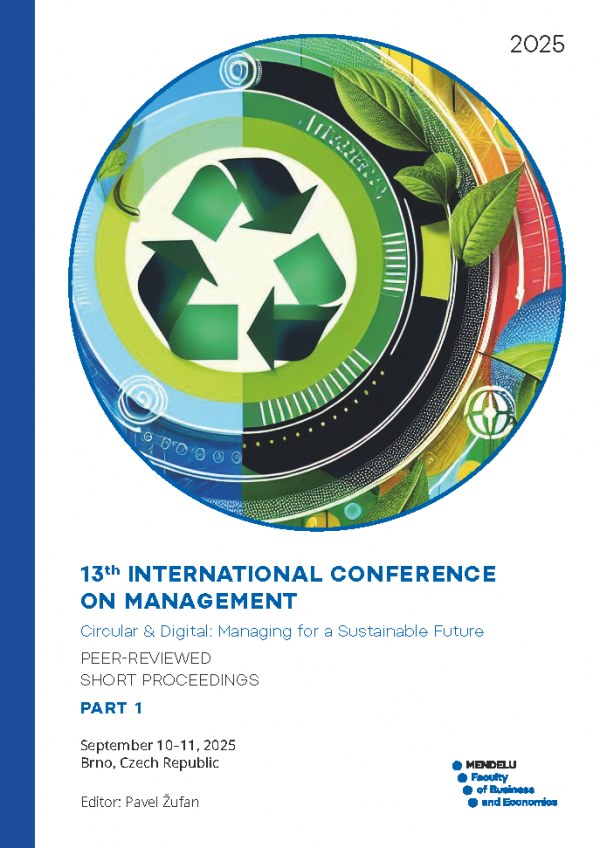
DOI: 10.11118/978-80-7701-042-9-0074
THE STRATEGIC ROLE OF HUMAN RESOURCE MANAGEMENT IN CENTRAL AND EASTERN EUROPE IN COMPARISON WITH INTERNATIONAL TRENDS
- Ildikó Éva Kovács1, József Poór1, Tamás Glázer2
- 1 MATE, Gödöllő, Hungary
- 2 John von Neumann University, Doctoral School of Management and Business Administration, Budapest, Hungary
The accelerated economic, political and technological changes of our time are posing serious challenges to all economic actors, who need to respond appropriately to maintain and even strengthen their competitiveness. A key factor in this is the methods used in staff management and their effectiveness. However, the functioning of human resource management is always embedded in a specific internal organisational and external environmental context, including the impact of cultural, social, institutional and political constraints, which influence it. Comparative HRM research based on a contextual approach seeks to capture and explain these regional similarities and differences. With this study we are also following the comparative approach. We examine the characteristics of HRM in Central and Eastern European organisations in comparison with international processes and global trends, focusing primarily on the strategic role of HRM. Understanding the HR practices and trends in our region in a global context can serve as a basis for the development of effective HR activities and can help to strengthen the competitiveness of companies in the region.
Klíčová slova: comparative HRM research, HR characteristics, Central and Eastern European cluster
stránky: 74-77, online: 2025
Reference
- Boxall, P., Purcell, J. 2003. Strategy and Human Resource Management. New York: Palgrave
- Brewster, C., Morley, M., Buciuniene, I. 2010. The reality of human resource management in Central and Eastern Europe: A special issue to mark the 20th anniversary of Cranet. Baltic Journal of Management. 5(2), 45-155.
 Přejít k původnímu zdroji...
Přejít k původnímu zdroji... - Dewettinck, K., Remue, J. 2011. Contextualizing HRM in comparative research: The role of the Cranet network. Human Resource Management Review. 21(1), 37-49.
 Přejít k původnímu zdroji...
Přejít k původnímu zdroji... - Dordević, B. 2016. Impact of national culture on international human resource management. Economic Themes. 54(2), 281-300.
 Přejít k původnímu zdroji...
Přejít k původnímu zdroji... - Fisher, R. 2008. Organizational justice and reward allocation. In: Smith, P. B. , Peterson, M. F., Thomas, D. C. (eds.). The Handbook of Cross-Cultural Management Research. London: Sage.
 Přejít k původnímu zdroji...
Přejít k původnímu zdroji... - Gupta, V., Hanges, P.J., Dorfman, P. 2002. Cultural clusters: methodology and findings. Journal of Word Business. 37(1), 11-15.
 Přejít k původnímu zdroji...
Přejít k původnímu zdroji... - Hall, P. A., Soskice, D. 2001. An Introduction to the Varieties of Capitalism. In: Hall, P., Soskice, D. (eds.). Varieties of Capitalism: The Institutional Basis of Competitive Advantage. Oxford: Oxford University Press.
 Přejít k původnímu zdroji...
Přejít k původnímu zdroji... - Hancke, B., Rhodes, M., Thatcher, M. 2007. Introduction. In: Hancke, B., Rhodes, M., Thatcher, M. (eds.). Beyond varieties of capitalism: conflict, contradiction, and complementarities in the European economy. Oxford: Oxford University Press.
 Přejít k původnímu zdroji...
Přejít k původnímu zdroji... - Hofstede, G. 1998. Think locally, act globally: cultural constraints in personnel management. Management International Review. 38(2), 7-26.
 Přejít k původnímu zdroji...
Přejít k původnímu zdroji... - Martín-Alcázar, F., Romero-Fernandez, P., Sánchez-Gardey, G. 2005. Strategic human resource management: integrating the universalistic, contingent, configurational and contextual perspectives. International Journal of Human Resource Management. 16(5), 633-659.
 Přejít k původnímu zdroji...
Přejít k původnímu zdroji... - Poór, J., Kovács, I. É., Karoliny, Zs., Machova, R. 2019. Global, regional and local similarities and differences in HRM in light of Cranet researches (2008-2016). Journal of Eastern European and Central Asian Research. 6(1), 1-23.
 Přejít k původnímu zdroji...
Přejít k původnímu zdroji... - Schuler, R. S. 2000. The internationalization of human resource management. Journal of International Management. 6, 239-260.
 Přejít k původnímu zdroji...
Přejít k původnímu zdroji... - Ulrich, D., Brockbank, W. 2005. The HR Value Proposition. Cambridge, MA, Harvard Press.


